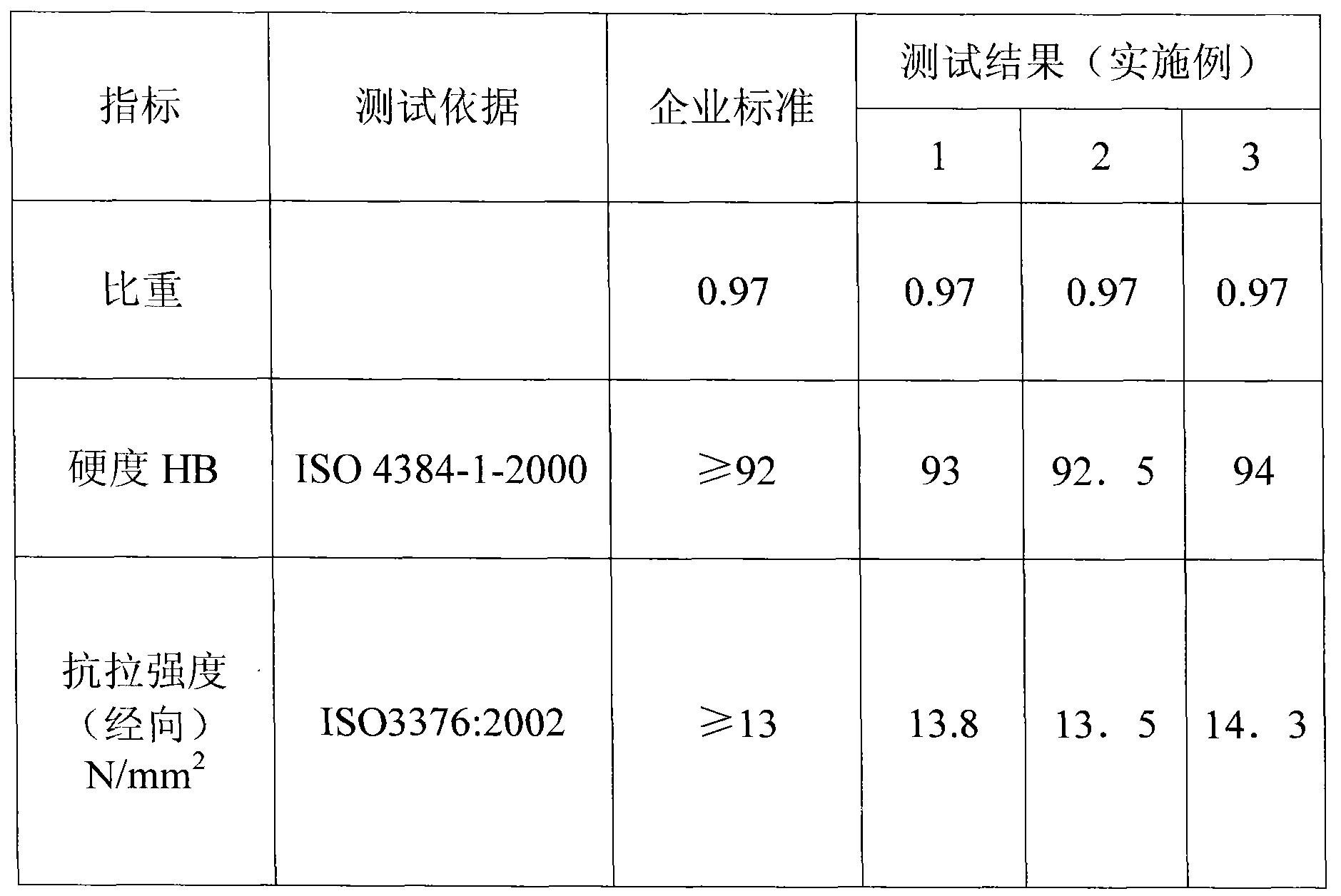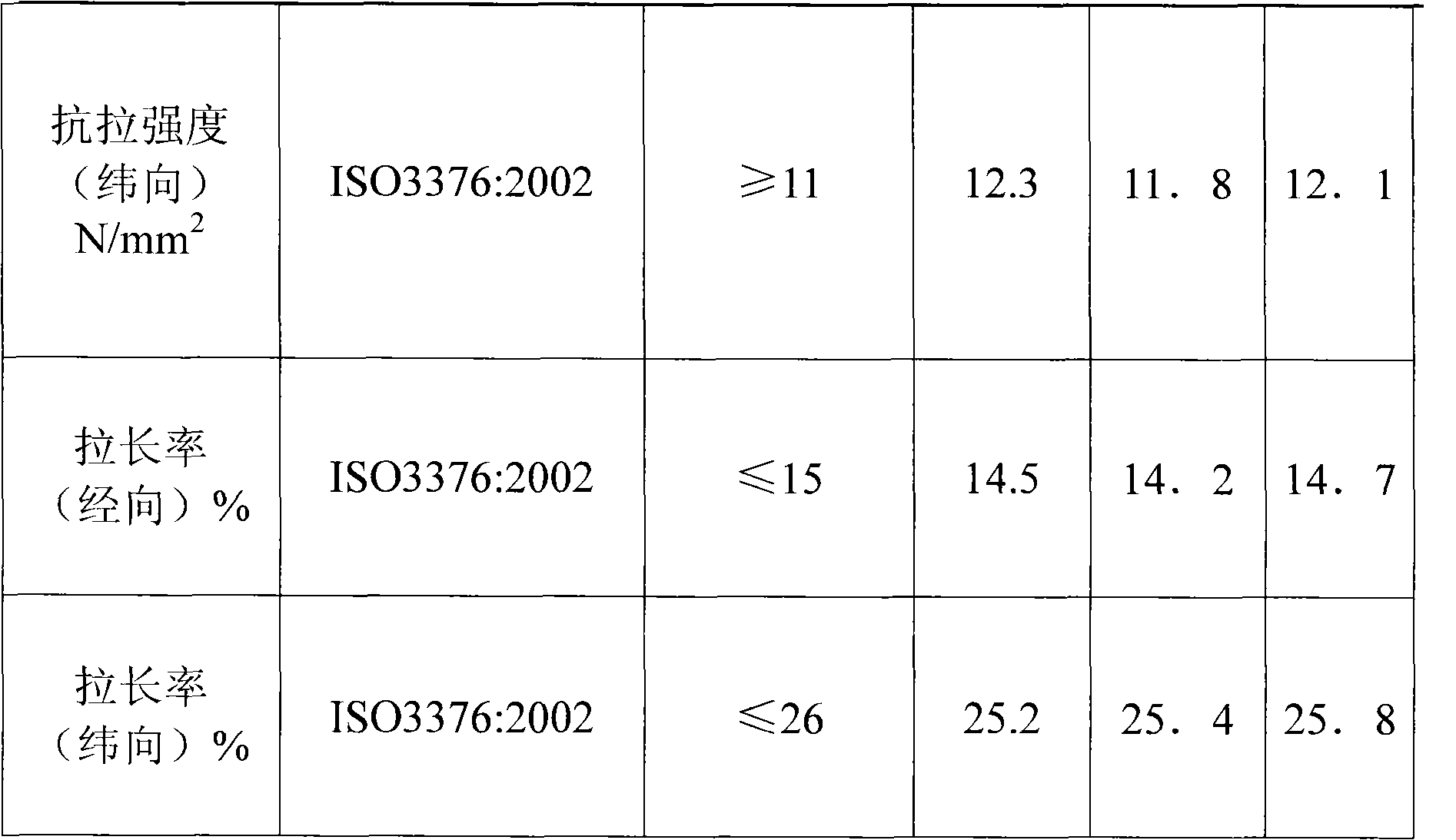Shoe-heel regenerated leather
A technology for regenerated leather and shoe heel, applied in the field of regenerated leather, can solve the problems of loss of high-quality collagen and tannin available resources, ordinary families cannot afford it, and the price of natural leather is expensive, so as to achieve a soft, plump and smooth hand feel, low price, and organization. tight effect
- Summary
- Abstract
- Description
- Claims
- Application Information
AI Technical Summary
Problems solved by technology
Method used
Image
Examples
Embodiment 1
[0017] Example 1: Regenerated shoe heel leather The composition includes the following components by weight percentage: 17% natural latex, 5% fish oil, 13% latex white rubber, the rest is 50% crushed leather, and 4% tannin extract.
Embodiment 2
[0018] Example 2: Regenerated shoe heel leather The composition includes the following components by weight percentage: 22% natural latex, 8% fish oil, 12% latex white rubber, the rest is 45% crushed leather, and 3% tannin extract.
Embodiment 3
[0019] Example 3: Heel regenerated leather The composition includes the following components by weight percentage: 27% of natural latex, 10% of fish oil, 10% of latex white rubber, the rest is 40% of broken leather, and 2% of tannin extract.
[0020] Performance Results Test Form
[0021]
[0022]
[0023] The performance test shows that the tensile strength (warp direction) is greater than 13N / mm 2 , the tensile strength (latitude) is greater than 11N / mm 2 , The warp elongation rate is less than 15%, the weft elongation rate is less than 26%, and the hardness is greater than 92HB, which meets the standard requirements.
PUM
| Property | Measurement | Unit |
|---|---|---|
| hardness | aaaaa | aaaaa |
Abstract
Description
Claims
Application Information
 Login to View More
Login to View More - Generate Ideas
- Intellectual Property
- Life Sciences
- Materials
- Tech Scout
- Unparalleled Data Quality
- Higher Quality Content
- 60% Fewer Hallucinations
Browse by: Latest US Patents, China's latest patents, Technical Efficacy Thesaurus, Application Domain, Technology Topic, Popular Technical Reports.
© 2025 PatSnap. All rights reserved.Legal|Privacy policy|Modern Slavery Act Transparency Statement|Sitemap|About US| Contact US: help@patsnap.com


